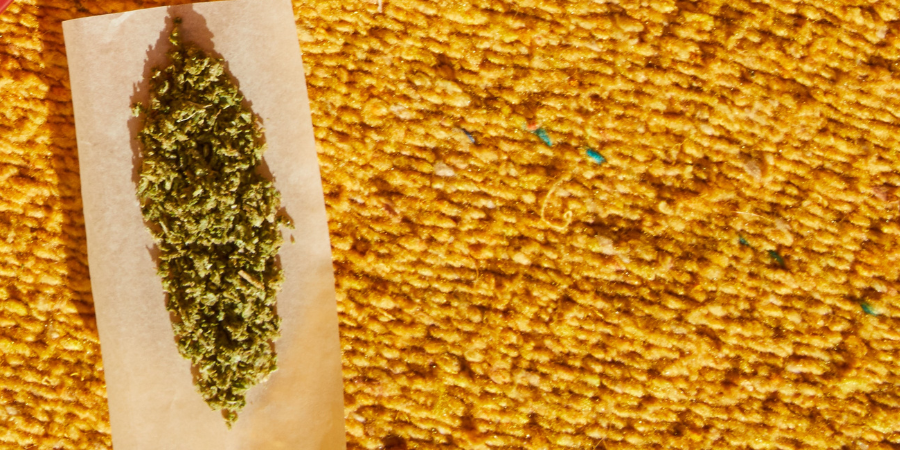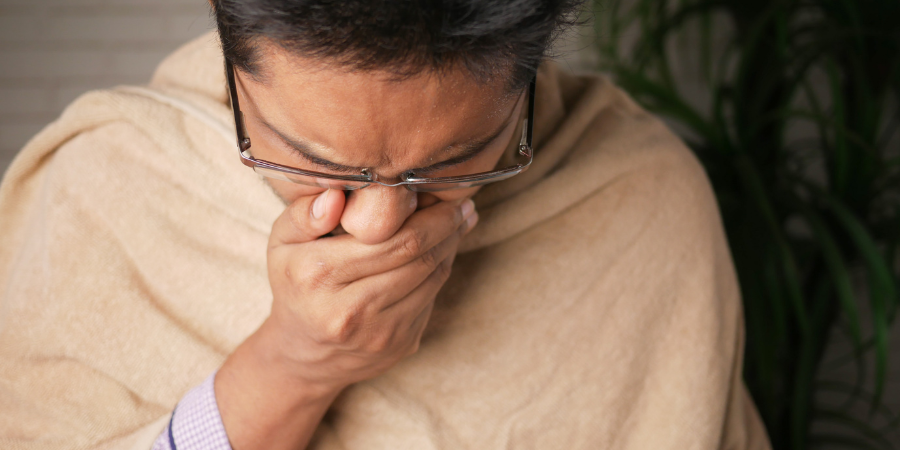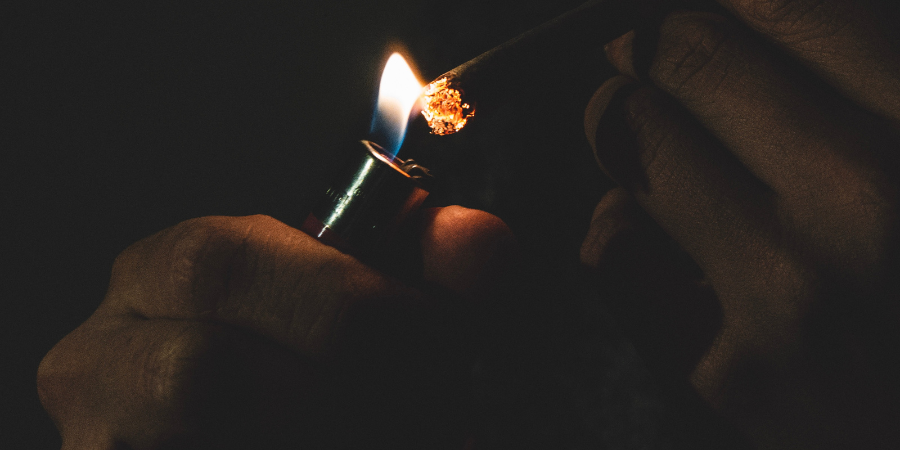
Written by:

Medically Reviewed by:
Last Updated:
August 7th, 2025
Spice Addiction | Definition, Symptoms and Effects
Spice has a reputation that swings between confusing and terrifying. It started as a so-called ‘legal high’, was sold openly in shops and smoked in public like it was harmless. But that version of Spice doesn’t exist anymore. The drug now circulates illegally, its chemical makeup constantly shifting and its effects often unpredictable and severe.
If you’ve found yourself using Spice more than you expected to or feel like it’s taken root in your life in a way that’s hard to explain, you’re not alone. This page explains how Spice addiction forms, what it can do to your body and mind and how recovery is possible with the right kind of support.
What is Spice?
Spice is a synthetic cannabinoid, which means it’s man-made but designed to mimic the effects of cannabis. It binds to the same brain receptors as THC but with far more intensity and unpredictability.
Originally legal in the UK, Spice was banned in 2016 under the Psychoactive Substances Act. It’s now classed as a Class B drug, meaning possession can lead to a prison sentence of up to five years. Despite this, it remains widely available and frequently used, particularly among the UK’s most vulnerable populations.
Why Spice addiction can develop so quickly?
One of the most dangerous aspects of Spice is how little people know about what they’re taking. Each batch can contain different chemical structures, potencies and added substances. This makes dosing difficult and side effects incredibly hard to predict.
Once Spice becomes a regular habit, addiction often follows. The drug builds tolerance quickly, and when someone stops using, the withdrawal symptoms can be severe: anxiety, insomnia, paranoia, cravings and even hallucinations. That’s usually when people return to using, not necessarily to get high, but just to feel okay again.
The reality of Spice use in the UK
Spice is no longer a fringe issue. It has firmly embedded itself in areas of British society where vulnerability and hardship are already widespread.
Spice has caused major harm across the UK, especially in vulnerable communities. In prisons, it was linked to nearly half of all non-natural deaths between 2015 and 2020, with 62 deaths out of 129. Its low cost and intense effects make it a common but dangerous escape for inmates. Among the homeless population, Spice use is widespread, often worsening health and increasing vulnerability. It’s cheap, potent and pushes many further into crisis. Worryingly, Spice has also reached schools. In 2024, several children in south-east London were hospitalised after unknowingly vaping Spice-laced e-cigarettes, with one falling into a coma.
Tests across 38 schools found one in six confiscated vapes contained Spice, a terrifying sign of how far it’s spread.
How Spice addiction affects everyday life
Spice doesn’t just affect users in the moment; its long-term effects can be devastating, too. The drug touches every area of life, from health to relationships, often leaving people feeling like shadows of themselves.
Physical health
Spice wreaks havoc on the body. Common physical signs include fatigue, rapid weight loss, tremors, heavy sweating and breathing difficulties. Because most users smoke it, long-term use can lead to lung damage and persistent coughing.
Withdrawal symptoms are often intense, including nausea, headaches, shaking and heart palpitations. Some people experience seizures when trying to stop on their own. This is why detoxing without support can be dangerous.
Mental health
Mentally, Spice can cause severe psychological distress. Users may experience paranoia, hallucinations and intense mood swings. Depression and anxiety often worsen between uses, and it’s not uncommon to feel disconnected from reality even when the drug has worn off.
Over time, some people develop long-term psychotic symptoms that linger even after stopping Spice. These effects can be terrifying, especially if the person doesn’t understand what’s happening or has no access to mental health support.
Relationships and behaviour
Like most addictions, Spice tends to damage relationships. Users often withdraw from family or friends, lie about their use or engage in risky behaviour to get hold of more. It becomes harder to show up for work or school and harder still to keep up appearances. As responsibilities slip and secrecy builds, many people find themselves socially isolated and financially unstable.
Signs of Spice addiction
Spice addiction doesn’t always look the same in every person, but there are some common signs that suggest things may be getting out of control. These can be broken down into three areas:
- Constant tiredness or low energy
- Red, irritated or bloodshot eyes
- Sudden, unexplained weight loss
- Shaking hands, excessive sweating
- Difficulty breathing or persistent coughing
- Anxiety, irritability or paranoia between doses
- Hallucinations or disturbing thoughts
- Emotional numbness or mood swings
- Memory problems or poor focus
- Spending large sums of money on Spice
- Lying about usage or becoming increasingly secretive
- Skipping work, school or missing important responsibilities
- Isolating from loved ones
If several of these signs feel familiar, it might be time to step back and look honestly at the role Spice is playing in your life, or in the life of someone close to you.
Mental health consequences of Spice addiction
Addiction can sneak in quietly, especially when a drug like Spice doesn’t follow a predictable pattern. You might have started using to feel calm, sleep better, escape stress or simply out of curiosity. But what was once occasional use might now feel more like a need.
Ask yourself:
- Do you feel anxious or unwell if you haven’t had Spice for a while?
- Have you tried to stop but found yourself using again?
- Is Spice getting in the way of your responsibilities or relationships?
- Do you hide your use or feel ashamed about it?
- Are you relying on Spice to cope with difficult emotions or daily life?
Even answering yes to one of these questions could mean that your relationship with Spice has become unhealthy. The good news is that there’s support available and you don’t have to fix this alone.
Spice addiction in the UK
Spice addiction doesn’t have to control your life. At Primrose Lodge, we offer a complete recovery programme designed to help you break free and stay free. With a supported detox, evidence-based therapies like CBT and DBT and holistic treatments such as yoga and meditation, we help you heal in every way.
You’ll also receive aftercare to keep you supported long after you leave.
If you’re ready to take back control and build a healthier, more stable future, we’re here to help you get started. Reach out today. Your recovery journey can begin now.
Frequently asked questions
(Click here to see works cited)
- University, Middlesex. “Worrying Increase in Spice Jail Deaths Highlights ‘Crisis in Prison System.’” Middlesex – London, 31 Jan. 2023, www.mdx.ac.uk/news/2023/1/spice-prison-deaths.
- “Children Hospitalised by Spice-Laced Vape with One Left in a Coma.” The Independent, Independent Digital News and Media, 13 Feb. 2024, www.independent.co.uk/news/uk/home-news/spice-vape-eltham-south-east-london-b2494863.html.
- Media, Clara Bullock & PA. “Pupils Unwittingly Smoking Spiked Vapes University of Bath Study Finds.” BBC News, BBC, 25 July 2024, www.bbc.co.uk/news/articles/c897qw8ddp9o.







